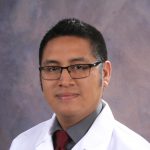Peru
Iquitos is a Peruvian port city and a gateway to jungle lodges and northern Amazon villages. The Belén district is known for its huge open-air street market and the rustic stilt houses that line the Itaya River. In the historic center, there is the Plaza de Armas, surrounded by buildings with European influence that date back to the boom that the region experienced at the turn of the 20th century with the production of rubber.
Pre-clerkship Rotation for 2nd Year COM Students; Clerkship Rotation for 4th year COM Students ; International Preceptorships FCM660
OST 687: Global Health: Peru Medical Service (college of Osteopathic Medicine Service Learning in Peru)
Dates: Summer Break 2024 –NEW DATES: August 01- August 13, 2024
Peru Medical Service Elective (Belen, Iquitos, Peru) is a 2 credit hour elective with an overall purpose as follows: to enhance students’ understanding host country’s healthcare system and understanding and developing cultural competency; in addition students will provide healthcare services under the supervision of licensed US physicians, develop an understanding of the regional disease etiology and control of endemic diseases, in particular, infectious/tropical diseases and those associated with the lack of potable water and sanitation.
This Elective is designed to help the student grow personally and professionally by immersing them in another culture, experience the healthcare system and delivery of medical services in a Developing Country to deepen their understanding of self and the global community. Students will gain knowledge of diseases common in South America; enhance their clinical skills and the use of medical Spanish; develop problem solving skills; broaden knowledge of public health issues and to experience the practice of medicine beyond the core curriculum.
- Second or Fourth year medical curriculum (COM) OR MS in Global Health students at Michigan State University.
- In good standing at the University
- Medical Spanish FCM590 elective (preferred)
- Must have respect for different cultures.
- Must demonstrate an ability to work collaboratively.
- Spanish speaking preferred but not required
- Second year medical curriculum (COM) student at Michigan State University.
- In good standing at the University
- Must coordinate and receive approval from FCM staff (Please contact: Rebecca Reagan)
- Must have respect for different cultures.
- Must demonstrate an ability to work collaboratively.
- Spanish speaking preferred but not required
- Students must apply through Michigan State’s Office of Study Abroad, click here to apply online.
- Submit copy of first page of Passport to IGH
- Submit copy of Immunization Record to IGH
- Only for FCM 660 applicants: Contact FCM staff (Ms. Rebecca Reagan) to coordinate international preceptorship slot
- The Office of Study Abroad offers scholarships to students who participate in MSU’s study abroad programs. Details here
The Peru Elective offers COM students the ability to witness medicine from a different perspective. They are able to immerse themselves in a different culture and open their minds on the path to becoming more understanding and compassionate physicians.
1) Bone Density screening project
Patient’s bone health is important to their quality of life. As our patients age, their bones can weaken and make the patient more prone to fractures, which are harder to heal from at an older age. The earlier we diagnose osteoporosis, the earlier we can treat it. This project focuses on better identifying, evaluating and treating patients who suffer from osteoporosis or low bone density-related fragility.
2) Diabetes education and access to care
Survey based study which is seeking to better understand barriers and access difficulties with diabetic patients. It is suspected that remote populations lack education and understanding of disease/long term effects, resulting in poorer outcomes.
3) Pediatric obesity and PACER
A study examining pediatric cardiovascular fitness with Progressive Aerobic Cardiovascular Endurance Run (PACER) testing as a predictor of cardiovascular fitness. Sample populations will be studied to further understand Double Burden risks and cardiovascular health in pediatric populations. Study will include doing a PACER exercise in Peru
4) Nutrition studies
Survey based study evaluating eating behaviors and food access to determine health consequences related to food choices. Further studies will include food scarcity and dietary limitations
5) Antibiotic stewardship
Study evaluating patients prescribed antibiotics in clinic and examining appropriate use. Study seeks to determine coordinated strategies to improve the use of antimicrobial medications with the goal of enhancing patient health outcomes, reducing resistance to antibiotics, and decreasing unnecessary costs.
6) Health disparity
Survey based study comparing US and Peru health care to determine shortcomings and healthcare seeking behavior. Project involves populations in Detroit, Spain, and Peru
7) Evaluation of Suspected Dementia
Patients with suspected risk factors will be screened with dementia screening evaluations (verbal fluency test, Mini-Cog, or Sweet 16). Further studies may include follow-up cognitive testing to rule out secondary causes of dementia
8) Prevalence of kidney stones
Ultrasound based project evaluating the prevalence of kidney stones in patient populations. Study may include survey based project evaluating risk factors and outcomes
9) C-section chronic pain study
Project focuses on evaluating long-term complications associated with c-sections, such as pain. Project aims to understand the role of OMM as a beneficial treatment modality
10) Gallbladder and diarrhea study
OMM based research project which seeks treatment options for cholecystectomy related diarrhea
11) Asthma maintenance and management study
Study seeks to better understand maintenance medication accessibility and outpatient management. Studies may include peak flow testing and role of OMM.
12) Exposure impact and risks related to patient health
Survey based study which seeks to better understand patient environmental exposures such as home/work related, pesticide, burning, etc.
13) Stigma and depression
Study seeks to better understand mental health, depression risks, and associated stigma of mental health in Peru.
14) Maternal vaccination coverage
Study hopes to determine access and adherence to current vaccination recommendations. Further studies may include survey based evaluation looking into maternal health risk factors.
15) Nanotechnology study
Study seeks to determine food borne bacteria in markets and risk factors. Using a handheld device samples will be taken from various food vendors and looking at bacteria presence.
16) Burden of medical missions
Study seeks to better understand the social and environmental impacts of medical mission trips.
17) Impact of self medication
Patients often self medicate or buy medications at stores for self treatment. Study seeks to better understand the behavior and shortcomings.
18) Identifying HIV risk factors in Teen populations
Peru has a growing HIV population. Study seeks to understand shortcomings while increasing knowledge of HIV strategies. Study also hopes to better understand current follow up resources
19) Coliform water testing
Study hopes to determine the prevalence of fecal contaminants in current drinking water.
20) HTN monitoring and screening data collection
Hypertension (HTN) and related diseases is a common clinical finding. Study hopes to determine barriers and long term impact of the under treated disease. Also research will focus on the non communicable disease impact in Peru.
21) Needs assessment
Project focus is on creating a needs assessment tool for local populations.
22) Examine pain reduction strategies
Project seeks to identify locally and long-term pain reduction strategies which may include local medications, OMM, etc.
23) Medication cost reporting
Study seeks to determine the cost of local medications vs. our cost.
24) Chronic disease management
Study seeks to identify self management strategies in chronic disease.
25) Risk Factors for HIV transmission among teenagers and women
Study seeks to identify risk factors among two neglected populations.
26) Accessibility to PreP medication to reduce HIV transmission among High risk HIV population
According to the new DHHS recommendations, the use of prophylactic medication to prevent HIV infection should be encouraged and implemented, this study aims to know what is the state of this recommendation in a specific population.
27) HPV Project.
Diagnosis of HPV high risk oncologic genotypes in Peruvian women using LAMP technology detection.
 William Cunningham DO, MHA currently serves as the Associate Dean for Global Health and the Director of the Institute for Global Health (IGH) at the College of Osteopathic Medicine at Michigan State University. Dr. Cunningham was instrumental in the formation and approval of the Masters in Global Health and Certificate program that will matriculate students in January of 2020. In his current capacity of Associate Dean, he is responsible for advocating on the behalf of the four health care colleges at MSU for the education, research and cultural awareness of their graduate students. Additionally, IGH provides Study Abroad programs, such as the Dominican Republic, for pre-professional students interested in the delivery of health care in a global context.
William Cunningham DO, MHA currently serves as the Associate Dean for Global Health and the Director of the Institute for Global Health (IGH) at the College of Osteopathic Medicine at Michigan State University. Dr. Cunningham was instrumental in the formation and approval of the Masters in Global Health and Certificate program that will matriculate students in January of 2020. In his current capacity of Associate Dean, he is responsible for advocating on the behalf of the four health care colleges at MSU for the education, research and cultural awareness of their graduate students. Additionally, IGH provides Study Abroad programs, such as the Dominican Republic, for pre-professional students interested in the delivery of health care in a global context. Dr. Jodi Flanders, a certified Family Physician and graduate of Michigan State University College of Osteopathic Medicine transitioned from her Family Medicine practice after 32 years, and she currently serves as Medical Director in a residential facility for survivors of human trafficking and addiction. International medicine is her true love, especially sharing this opportunity with medical students and residents. Hobbies include the study of the Labyrinth, mentoring young physicians and medical students, and admiring her children.
Dr. Jodi Flanders, a certified Family Physician and graduate of Michigan State University College of Osteopathic Medicine transitioned from her Family Medicine practice after 32 years, and she currently serves as Medical Director in a residential facility for survivors of human trafficking and addiction. International medicine is her true love, especially sharing this opportunity with medical students and residents. Hobbies include the study of the Labyrinth, mentoring young physicians and medical students, and admiring her children. Dr. Briceno serves as a Program Assistant for the Peru Program. He resides in Trujillo Peru and is IGH local faculty in many research endeavors. He is an infectious and Tropical Diseases Attending Physician with several publications related to Tuberculosis, HPV and COVID-19. Some of Dr. Briceno’s Abstracts with participant students: https://osteopathic.org/wp-content/uploads/shermetaro-poster.pdf and https://osteopathic.org/wp-content/uploads/2016-biom-student-abstracts.pdf
Dr. Briceno serves as a Program Assistant for the Peru Program. He resides in Trujillo Peru and is IGH local faculty in many research endeavors. He is an infectious and Tropical Diseases Attending Physician with several publications related to Tuberculosis, HPV and COVID-19. Some of Dr. Briceno’s Abstracts with participant students: https://osteopathic.org/wp-content/uploads/shermetaro-poster.pdf and https://osteopathic.org/wp-content/uploads/2016-biom-student-abstracts.pdf
*Meets preceptorship requirement for OMS II. Date: July 27 to August 10, 2024
